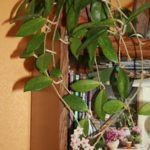Houseplants: The Bad Childhood Experience
One of my favorite eye-openers to share with readers and those who come to hear me speak is the bad childhood experience. Not mine, but of poor, defenseless houseplants. It is this dirty little secret that causes many people to mistakenly think they have black thumbs and to give up on houseplants.
If you bring a plant home and it dies a few weeks later, the truth is, unless you forgot to water the plant, it is not your fault. Repeat after me, “It is not my fault; it is not my fault; it is not my fault.”
Let me explain.
Houseplants enter this life much like us humans. In order to spur them to grow quickly so they can be sold, growers baby plants in greenhouses where they are cocooned in the ideal temperature while receiving just the right amount of light and water. A few other “special ingredients” are slipped to houseplant babies along the way: chemical fertilizers, synthetic growth hormones and increased levels of CO2.
Such an engineered existence doesn’t last long, however. When the plants plump up and are big enough for sale, they’re thrown onto dark trucks that are cold or hot, depending on the season, and trucked often many miles to their destinations. If they’re lucky, the innocent baby houseplants arrive at quality nurseries, where they’re put indoors or in the shade. If they’re not so lucky, they make their way to a big box store where they may be put out in the harsh sun.
What happens next?
You, the unknowing surrogate parent, comes along and spies a plant, which often still looks good, as plants are slow to react to abuse. Excited to add to your indoor collection, you scoop up the wayward plant, buy it and bring it home. Unaware of the plant’s prior treatment, you give it a new home and water it.
Three weeks later, the plant is dead or looking so poorly it’s only a matter of time.
What do you do?
You chalk it off to another failed attempt with houseplants.
The truth?
You did nothing wrong! The plant was detoxing, and you had no idea. It was crying out for its chemical fertilizers and growth hormones.
Next time, avoid houseplant failure by being proactive. When you bring a houseplant home, detox it before it goes into withdrawal. Here’s how:
Leach the plant, which means rinsing the soil thoroughly by running water through it slowly.
Repot in an organic soil rich in nourishing amendments like worm compost.
Re-inoculate with good “drugs,” including organic fertilizers, especially those containing alfalfa meal and sea kelp or meal, both of which contain natural growth hormones.
Place the plant in a location with ideal lighting, and water properly.
Pat yourself on the back. You are a good plant parent!
For more tips on growing a healthy, happy indoor garden, see my book, Indoor Gardening the Organic Way: How to Create a Natural and Sustaining Environment for Your Houseplants.





